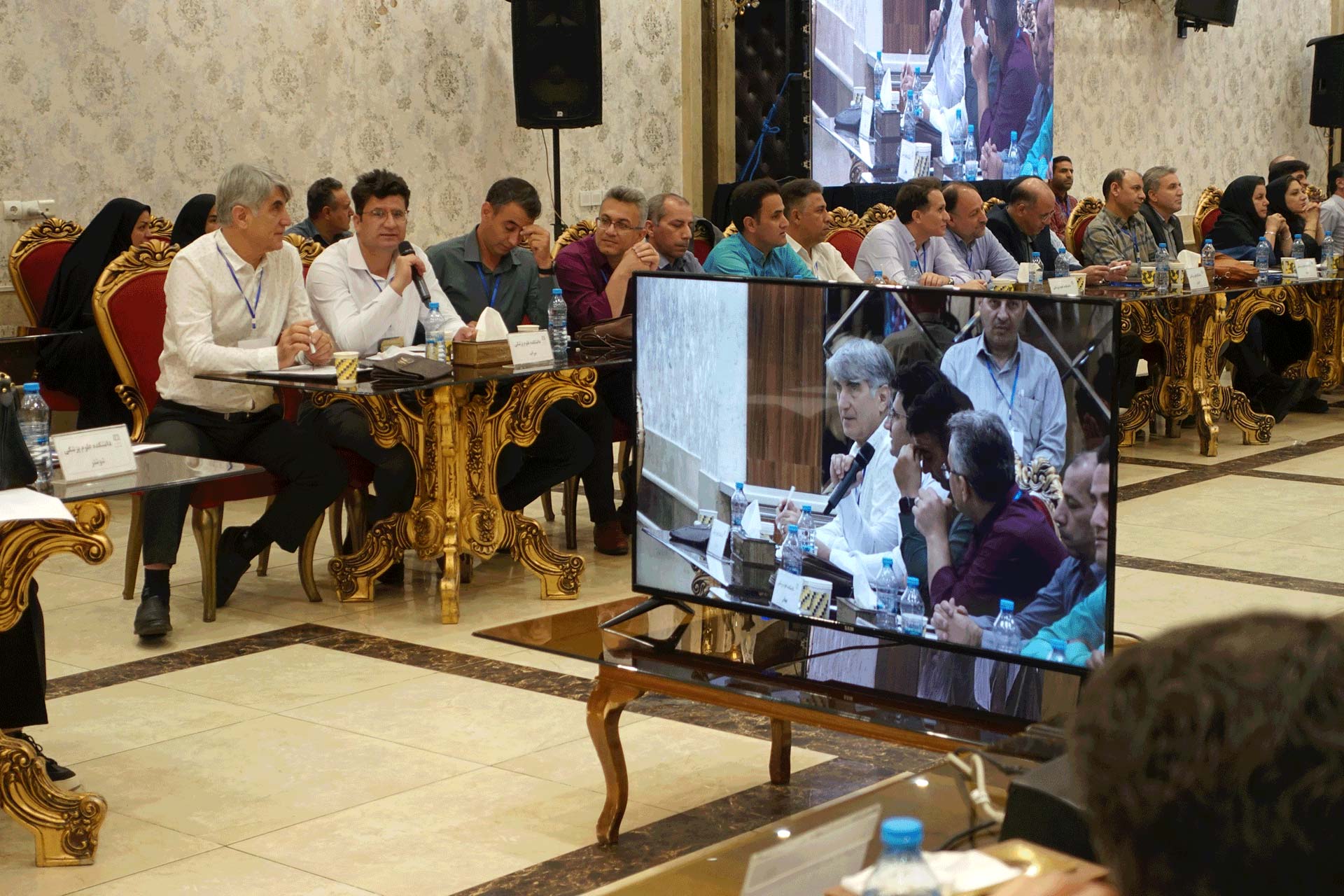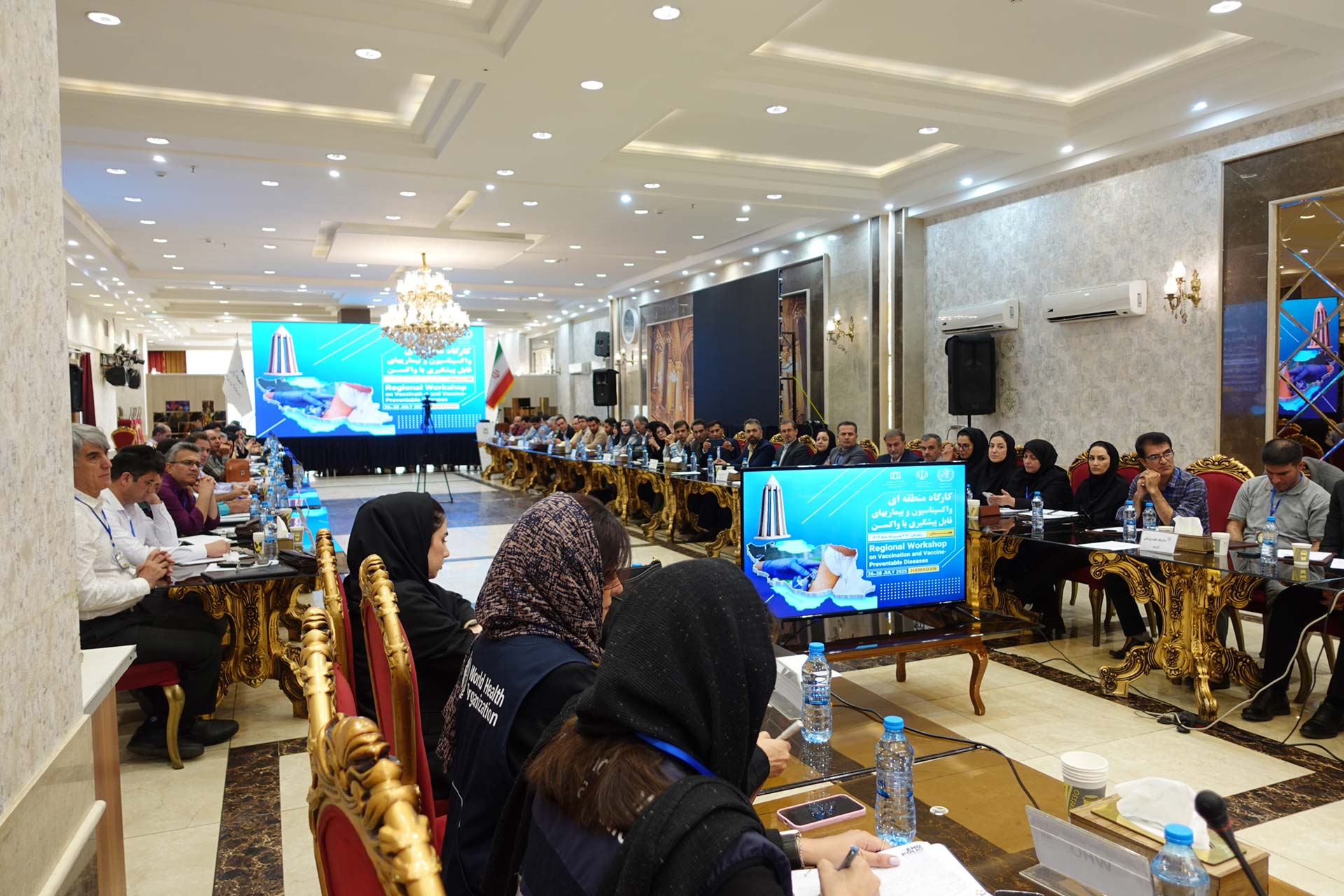 27 August 2025, Hamadan, Islamic Republic of Iran – In a push to strengthen the country's immunization programme, over 80 health officials and senior managers from across the Islamic Republic of Iran gathered in Hamadan for a 3-day training of trainers (ToT) workshop.
27 August 2025, Hamadan, Islamic Republic of Iran – In a push to strengthen the country's immunization programme, over 80 health officials and senior managers from across the Islamic Republic of Iran gathered in Hamadan for a 3-day training of trainers (ToT) workshop.
Held between 26–28 July, the workshop was organized by the Hamadan University of Medical Sciences in partnership with the Ministry of Health and Medical Education (MoHME), with support from the World Health Organization (WHO) and Gavi, the Vaccine Alliance.
The workshop brought together immunization officers from 32 universities of medical sciences. Participants honed their skills in areas such as vaccine scheduling, cold chain management and monitoring adverse events following immunization, and also in risk communication to effectively address public health concerns.
 MoHME EPI Manager Dr Seyyed Mohsen Zahraei noted the Islamic Republic of Iran’s successful, 50-year history of battling infectious diseases, includong the country's eradication of polio and elimination of measles. He underscored the vital role of the National Immunization Technical Advisory Group (NITAG) in guiding immunization policies.
MoHME EPI Manager Dr Seyyed Mohsen Zahraei noted the Islamic Republic of Iran’s successful, 50-year history of battling infectious diseases, includong the country's eradication of polio and elimination of measles. He underscored the vital role of the National Immunization Technical Advisory Group (NITAG) in guiding immunization policies.
Dr Omid Zamani of the WHO Country Office underlined the Organization’s commitment to Iran's health initiatives, highlighting their alignment with the global Immunization Agenda 2030.
Throughout the sessions, participants engaged in candid discussions about the local challenges they face, including logistical hurdles in reaching remote, rural communities.
An online evaluation survey conducted by WHO at the workshop's close revealed high participant satisfaction with the organization and content of the training and the expertise of the trainers.
The knowledge and skills gained during workshop will have a ripple effect as participants go on to conduct trainings at the provincial and local level to empower a broader network of health care providers.
This cascaded training aims to enhance immunization service delivery and improve vaccine coverage across the country.



